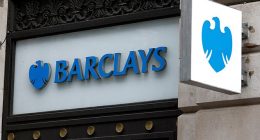
The bureau doesn’t rush in making these judgments.
We won’t know for sure that we’ve had a recession until well after it’s started, and, quite probably, not until long after it’s ended. That’s what happened for the last recession. It started in February 2020, near the beginning of the pandemic, and ended in April 2020. But the bureau waited 15 months, until July 2021, to declare that a recession had ended. “Earlier determinations took between four and 21 months,” the bureau says. “There is no fixed timing rule. We wait long enough so that the existence of a peak or trough is not in doubt, and until we can assign an accurate peak or trough date.”
Often, stocks fall before a recession starts and rise before it’s over.
The economic research bureau “dates recessions only after they’ve begun,” Marlena Lee, the global head of investment solutions at Dimensional Fund Advisors, said in an email. “Markets, on the other hand, call them well in advance.”
Historical Returns
At my request, Ms. Lee examined all 11 U.S. recessions since 1948 and calculated the S&P 500’s annualized total returns, including dividends, starting with the first day of the month after the recession started.
I find these averages reassuring:
-
One year after the starting dates, the S&P 500 returned 6.4 percent.
-
Three years after the starting dates, it returned 12.1 percent.
-
Five years later, it returned 10.4 percent.
-
Ten years later, it returned 12 percent.
-
Twenty years later, it returned 11.5 percent.
Consider that, with compounding, $1 in the index would be worth $10.56 after 20 years, on average. So far, so good.
Now for the caveats.
These are only long-term averages, and there are big variations among them.
The best 20-year return, which occurred in the two decades starting in February 1980, was 17.2 percent, annualized. That would transform $1 into $24.02 after 20 years.
Source: | This article originally belongs to Nytimes.com








